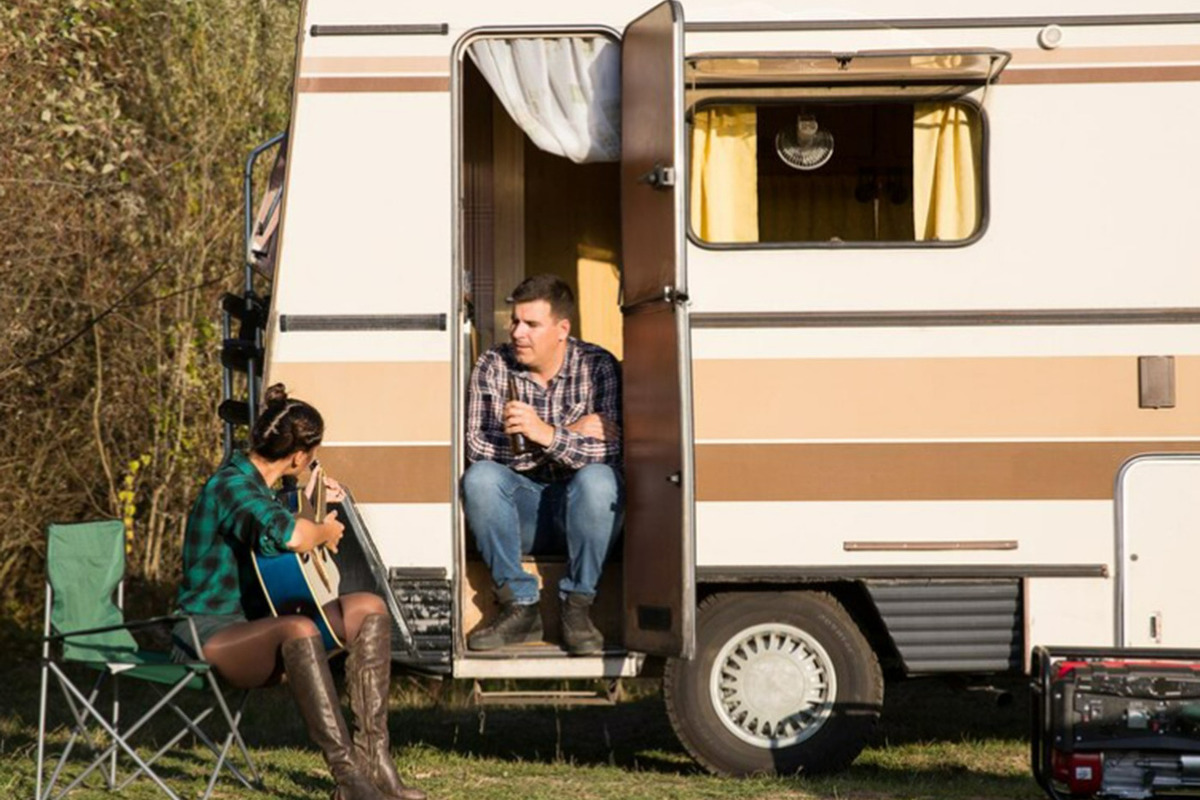Rosstandart called for “regulating” mobile homes with technical regulations
[ad_1]

The Rosstandart working group recognized mobile homes – also known as campers, caravans, motorhomes – as not complying with the technical regulations of the Customs Union. This does not bode well for caravanning enthusiasts – not yet so numerous – in Russia: they are already afraid of checks and difficulties with registering their motorhomes. MK found out exactly what the new measure threatens and how standardization will affect the road travel industry, which is being developed in many regions in Russia.
The topic of motorhomes came up in the discussion of Rosstandart at a meeting dedicated to combating illegal trafficking in engineering products and vehicles. All types of “residential transport”, from full-fledged motorhomes to trailers and residential modules, are at risk – they are now described in legislation as ordinary cargo (or a vehicle carrying cargo) in accordance with Art. 23 traffic rules.
But this is wrong, the department believes, a new standard is needed, dedicated specifically to campers. The current state of affairs threatens the life and health of motor tourists themselves and other road users, since often the tourist “stuffing” overloads the carrier vehicle or tug. And the equipment – for example, seats – in motorhomes is not always certified.
In particular, the executive secretary of the Rosstandart working group, Karen Tadevosyan, stated that campers provide an additional load on the vehicle of 0.5 – 2.5 tons, which is most often not provided for by the manufacturer. In addition, non-certified lighting equipment, glazing and other elements are used in the design of motorhomes. All this in the case of traffic rules can aggravate its consequences, the official is sure. Therefore, a national standard agreed through the UN Economic Commission for Europe is needed.
“Buyers of new motorhomes, including domestically produced ones or those imported through parallel imports, have nothing to worry about; this equipment has all the necessary certificates,” noted Alexey Ostrovsky, a specialist in the selection and maintenance of used cars. – But among the used copies there are practically no certified ones: documents are given for the entire trailer or motorhome, but no one saved certificates for everything, everything, from the stove to the windows and shelves, and in 90% of them there are no certificates when importing such technology.
In the same way, the introduction of motorhomes into technical regulations and standardization may entail an actual ban on homemade caravan trailers and residential modules, suggests MK’s interlocutor.
“In the Soviet years, when it was impossible to buy ready-made trailers of this kind, there was a practice: an ordinary cargo trailer was “built” with plywood or fiberglass panels, while the numbers and documents remained from the original model,” recalls Leonid Isachenko, a motor tourist with 50 years of experience. – Drawings and diagrams of such alterations were published in magazines such as “Modelist-Constructor”. Some registered such trailers separately as home-made vehicles, but others did not do this and drove like that. The residential module was treated as cargo – as long as the permitted maximum weight of the trailer was not exceeded.
In the post-Soviet years, especially after 2000, when European used campers and motorhomes began to be imported into Russia, craftsmen stopped building their own modules based on cargo trailers and switched to finishing and customizing ready-made, but sometimes worn-out solutions, the autotourist added. Many people have modified and are still modifying campers not with specialized, but with “furniture” components. Moreover, quite official manufacturers acted in the same way.
“In the 2000s, I saw new trailers made in Belarus,” Isachenko recalls. – There key components, such as windows, a stove, a gas refrigerator, a dry closet, were German, although they were the cheapest, but everything else, primarily the transformable shelves, was of our own design. Made from ordinary furniture chipboards, fastened with furniture bolts of the “toilet” system. Such furniture broke due to rocking during the first major trips.
Both home-builders and “tuners” of motorhomes, if technical regulations are introduced, will fall under the distribution – just like ordinary owners who did not keep the certificates for the old trailer, suggests used car expert Alexey Ostrovsky.
“Detailed control of a motorhome or caravan is unlikely to be carried out directly on the roads,” suggests an employee of the Moscow region traffic police headquarters. – This will take a lot of time, so the inspector will only deal with this if there is reasonable suspicion of some serious violations. Residential modules such as a tent with a folded trunk will also most likely not be checked if such a trunk as a whole has a certificate. But a homemade hunting lodge made from a “loaf” – here the owner may have problems. And documents for residential modules for pickup trucks will be checked more carefully.
How are possible restrictions combined with programs for the development of motor tourism, with preferences, including for domestic motorhome manufacturers and camping organizers? In principle, it’s quite simple: all of the problems listed above threaten those who want to purchase (or have already purchased) a ticket to the caravan community cheaply – by creating their own or purchasing an old trailer or motorhome. Tourists from this category – those who cannot afford at least a brand new residential “loaf” for 2.5 million rubles – are obviously invited to become renters of certified, reliable and expensive equipment. And its owners will be those who can afford it.
[ad_2]
Source link








